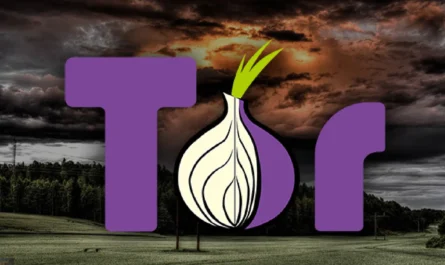A growing number of British police forces are reducing their presence on X, the social media platform formerly known as Twitter, amid rising concerns about the spread of extremist content and disinformation.
According to a Reuters special report, several of the UK’s 45 police agencies have decided to reassess or scale back their communication on the platform, citing worries about its tone, audience behavior, and alignment with public service values.
While Elon Musk, the billionaire owner of X, continues to defend the platform as a bastion of free speech and a counterbalance to censorship, law enforcement agencies are questioning whether it remains an effective tool for community engagement.
Police Forces Reconsider Their Relationship with X
The Reuters investigation surveyed all 45 police forces across England, Wales, Scotland, and Northern Ireland, asking about their current use of X and future social media plans.
Of the 33 forces that responded, 10 said they were actively reviewing how they use X, collectively representing regions serving nearly 13 million residents. Another 10 forces said they routinely review their social media content across various platforms, including Facebook, Instagram, and TikTok.
Several forces have already taken steps to reduce their activity on X, consolidating communication through one or two official accounts instead of maintaining multiple profiles for departments or individual officers.
The North Wales Police, which serves roughly 700,000 people, has gone further than most — it completely stopped posting on X in August.
“We believed that the platform was no longer in line with our values, so we have stopped using it,” the force said in a statement.
Chief Constable Amanda Blakeman added that the department continues to monitor other platforms to ensure public information and engagement are not compromised.
Concerns About Platform Tone and Misinformation
Other forces are expressing similar unease. Gwent Police, located in southeast Wales, recently confirmed that it is reviewing its presence on X, citing apprehension about “the tone of the platform and whether that is the right place to reach our communities.”
The force has already removed all individual officer accounts to limit exposure and potential backlash.
Elsewhere in England, another unnamed police department told Reuters it was considering whether continuing to use X remained “the most effective way to interact with and build trust” with the public.
While social media remains a vital communication tool for law enforcement — used to issue public warnings, locate missing persons, and share crime prevention tips — the changing environment on X has made some agencies wary.
Officials point to increased hostility, politically charged discourse, and the spread of misinformation as major reasons for their reconsideration.
The Southport Incident: A Catalyst for Scrutiny
The debate over X’s role in public communication intensified following a tragic incident in Southport, a town in northwest England.
In the wake of a triple murder at a children’s dance class, misinformation spread rapidly across social media — particularly on X.
Several viral posts falsely claimed that the perpetrator was an Islamist immigrant, a narrative later proven false but one that fueled public outrage. The disinformation quickly spiraled, leading to nights of racially charged riots across Southport and other parts of the UK.
The incident highlighted the speed and reach of misinformation on social platforms and raised urgent questions about content moderation and accountability.
While none of the police forces interviewed by Reuters directly linked their social media reviews to the Southport case, the timing coincides with increased public and governmental scrutiny of X’s role in spreading extremist narratives.
Musk’s Response: Defending Free Speech
Throughout the growing criticism, Elon Musk has positioned himself as a defender of unrestricted speech, arguing that censorship poses a greater threat to democracy than harmful content.
Following the Southport riots, Musk posted on his platform that “civil war is inevitable” — a statement widely criticized for being inflammatory amid a volatile national situation.
Critics argue that Musk’s approach to moderation has allowed hate speech, disinformation, and extremist rhetoric to flourish. They claim that the platform’s loosening of content rules and staff cuts to moderation teams have created an environment where false or harmful narratives spread unchecked.
Supporters, however, view Musk’s policies as a necessary correction to what they see as overreach and bias in online censorship.
A Shift in Public Sector Communication
For more than a decade, Twitter — now X — has been a trusted communication tool for public institutions in the UK. Government agencies, emergency services, and even the British royal family relied on its brevity and immediacy to share updates and connect with citizens.
During emergencies, local crises, or public safety incidents, Twitter’s short-form posts provided a direct link between authorities and communities. Many police forces praised it as an essential platform for real-time communication.
However, that perception is changing.
As misinformation becomes harder to control and online hostility grows, several police departments now question whether X still serves its original purpose — to inform and protect communities.
Some agencies are shifting focus toward Facebook, Instagram, and TikTok, where they believe audience engagement is higher and community sentiment more manageable. Others are investing in direct communication channels, such as mobile apps and email alerts, to avoid reliance on any single private platform.
Broader Implications for Digital Trust
The retreat of law enforcement from X signals a broader concern about trust and safety in digital spaces.
Social media platforms have long promised to connect people, but their role in shaping narratives — especially during crises — is increasingly under the microscope.
When police forces withdraw from major platforms, the ripple effects are significant. It may limit their ability to dispel rumors, provide accurate updates, and build transparency with the public. At the same time, remaining active on platforms rife with disinformation poses its own reputational and ethical risks.
Experts suggest that these developments could lead to a fragmentation of public communication, where citizens receive official updates from multiple, inconsistent sources.
Conclusion: Balancing Engagement and Integrity
The tension between free speech and responsible communication continues to define the modern digital landscape. For UK police forces, the challenge lies in finding platforms that balance reach, reliability, and respect for public values.
While Elon Musk’s X remains a powerful communication tool, the growing exodus of police agencies highlights a deeper unease with how online spaces are evolving.
Whether these moves represent a temporary adjustment or a long-term shift away from X, one thing is clear: in an age where information spreads faster than ever, trust and credibility are the most valuable currencies of all.




